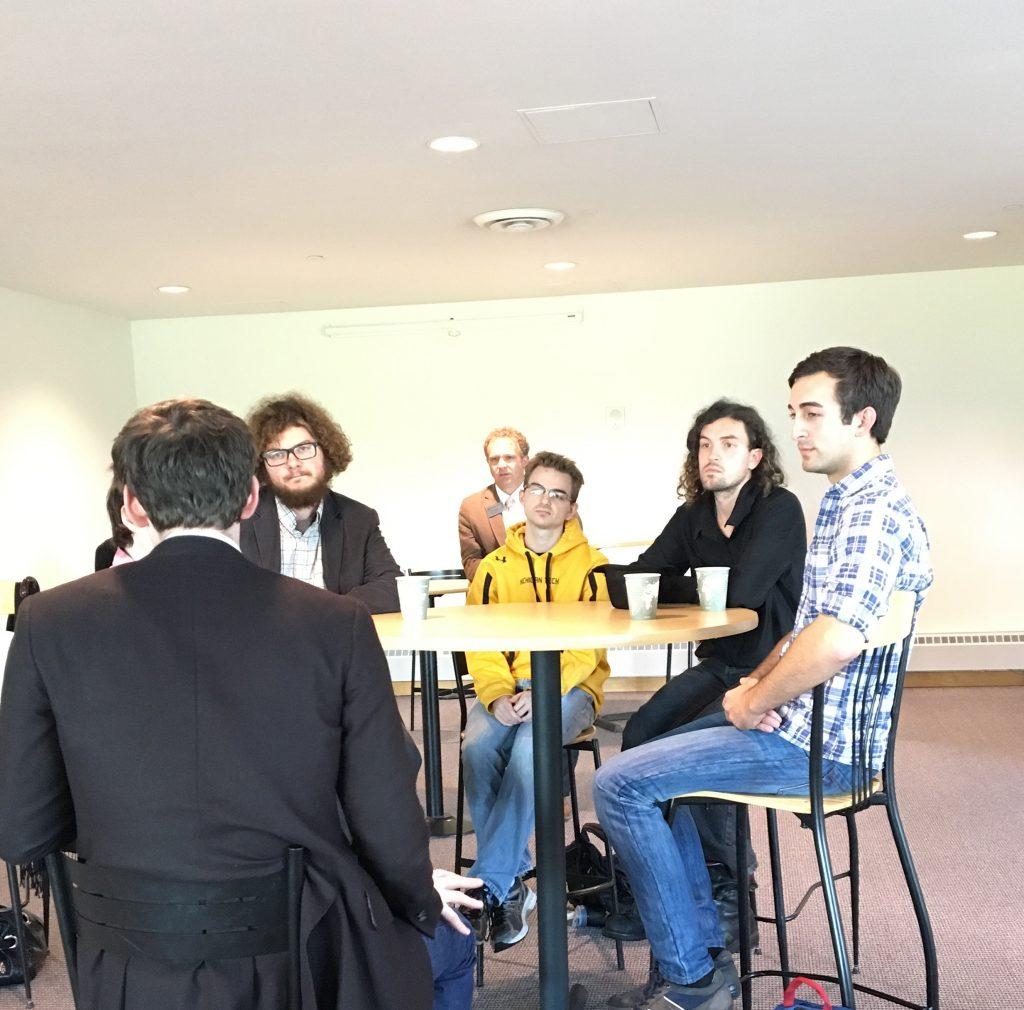On Wednesday Oct. 5, Michigan Tech hosted a lecture series featuring Derek Thompson. Thompson is a senior editor for “The Atlantic” who has written many pieces, including A World Without Work. In this piece he explores the way technology has affected the economy and what the future of work many look like with further automation. He focuses predominantly on economic and labor market issues, including those involved in politics. His talk at Tech followed a similar topic and consisted of two parts; he opened with a lecture and concluded with a panel discussion featuring local community members, faculty and students.
With the election coming up, it’s important to understand the economics and politics of the nation. Specifically, it is important to understand the culture and perspective of the millennial generation. The Millennials, as Thompson explained, are greatly influential due to their size and the technological changes that have occurred in the past few decades. A standout feature of the Millennials is that they have very high expectations and feel let down by current economic circumstances. As a result of this, Millennials tend to be less trusting of the establishment and authority. With an abundance of media trying to influence politics, many Millennials have turned against the capitalist ideals in America. What does this mean for the 2016 election?
As we saw in the polls, there was overwhelming support for Bernie Sanders by Millennials. This support came with criticism from other generations, with critiques such as the claim that Millennials were turning against capitalism. This may be due to the “Revolution of Rising Expectations” and the shift to an individualistic society.
The Theory of the Revolution of Rising Expectations holds that revolutions often occur when a group feels that its standard of living is not as high as it was told to expect. The idea came to popularity in the 1950s post war time; however, the initial idea dates back to Tocqueville and the French Revolution. Thompson believes that this applies to millennials in that their parents grew up in a strong economy, and the early life of the Millennial was lived in a strong economy. Unfortunately, the Great Recession hit just as soon, or just before many millennials began to enter the workforce. The Revolution of Rising Expectations has led to many people feeling that their expectations have been unfulfilled by current policies and economic systems. And so we saw a dramatic shift to supporting Bernie Sanders and his relatively socialist policies. He provided hope to a generation that is high on aspirations, but low on fulfillment.
Thompson’s lecture was full of interesting points and ideas that made the audience consider the deeper meaning behind today’s events. It also gave some insight on how technology, economics and culture has changed in America over the past century. These topics carried over into a discussion panel following the talk. During the discussion, panelists and members of the audience posed questions about the future of politics and the economy.





